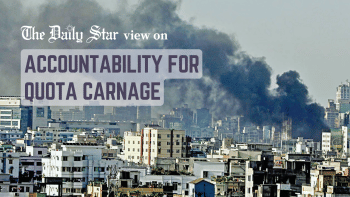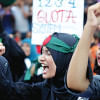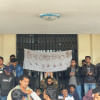Bring those who ordered the excessive use of force to account

The student protesters' demand for the reform of the existing quota system in government job recruitment is logical, in my opinion. Quota is a temporary special arrangement, which can be enforced in hopes of achieving equality. Our constitution says the same; the preamble mentions creating equal opportunities.
In the preamble as well as Article 8, it is stated that the goal of our state is to create a just economic and social system. In articles 28 and 29, there is a mandate for the state that allows it to take special initiatives in this regard. Article 28 (4) says that for the advancement of women, children and the backward sections of society, the state can take special initiatives. And Article 29 (3) says that for any appointments in the service of the republic or a republic office, there can be reservations for the backward sections. So there is a constitutional mandate that quotas can be created to achieve equality.
Now the question is, how will the quota be used, and for whom? The quota reform seekers have raised this concern: through which process the quota system is being implemented, and whom it is serving. Are the existing quotas helping us achieve equality, as per the constitutional mandate, or are they the doing the opposite, creating a situation where some groups are getting advantages over others, further creating discrimination? This is why the protesters have labelled themselves as the Students' Movement against Discrimination.
In the verdict we received from the Appellate Division today (yesterday), the court suggested five percent quota for freedom fighters, one percent for differently abled population and the third gender, and one percent for the Indigenous people. The women's quota was not mentioned. I see today's verdict as a suggestion, because how the quotas will be determined is entirely to be decided by the executive branch, as only it has the power to do so according to the constitution. The court also observed that the government can change or reform the quota system as it deems necessary. The court also mentioned a circular to be issued in this regard.
I think quotas should be determined because we need quotas in order to ensure progress towards equality for those who are historically disadvantaged in our society. And that includes certain communities including Indigenous people, people with disabilities, etc—people who have been held back because of their cast, ethnicity or other characteristics. But the process of determining these quotas should be based on evidence. There's already a lot of decisions from our courts and from other courts in the region and indeed elsewhere, that when you make quotas, they can't create further discrimination as a result. These principles have to be borne in mind when the quotas are determined. I think it's important that all these issues should be taken into account when the government does make a decision regarding quotas, that they should be aimed at serving equality for those who are disadvantaged. And this has to be based on exercising constitutional powers and the mandate.
Secondly, about the movement by the young men and women who are students in our public and private universities for the reform of quotas, I understand it to be for ensuring equal opportunities for everyone in our society, to obtain representation in government service. They have always talked about ensuring quota reform so that the system is fair and representative, and that it doesn't unfairly advantage any particular group. They want the quotas to not be imposed in a way that the majority of the aspirants for positions in government offices are blocked out from that opportunity.
What we have seen in the past week in terms of the excessive use of force against peaceful protesters, I think that is unconscionable. We are hearing reports even today that there are firings going on. It is essential that this violence stops. It is critical that there should be proper accounting for who authorised this kind of use of force, which has been excessive and disproportionate. Almost everyone in the country has witnessed, either in person or through the media, the kind of assaults that have been carried out against the peaceful protesters. This has to be brought to account through a process that is independent, impartial, and effective. We need to see not only those who shot directly on the protesters and others, but also those who ordered the firing to be brought to account. The last two days we had a curfew, and we have been told that there is a shoot-at-sight order. What was the order in place before the curfew was imposed? Under whose authority did those shootings happen that led to more than a 100 deaths, as far as we know, or maybe more? How did this take place and how do we hold these people to account? I think this is the most urging question before us now.
Barrister Sara Hossain is Supreme Court lawyer and the honorary executive director of Bangladesh Legal Aid and Services Trust (BLAST).
Views expressed in this article are the author's own.
This article was published in print on July 22, 2024. Owing to the internet shutdown from the evening of July 18 to July 23, it is being uploaded online on July 24, 2024.
Follow The Daily Star Opinion on Facebook for the latest opinions, commentaries and analyses by experts and professionals. To contribute your article or letter to The Daily Star Opinion, see our guidelines for submission.

 For all latest news, follow The Daily Star's Google News channel.
For all latest news, follow The Daily Star's Google News channel. 










Comments